Marxist Humanism
and the “New Left”
An index to the writings and biographies of Marxist-Humanist writers.
See Humanism in the M.I.A. Encyclopedia.
Marxist Humanism emerged in the wake of Khrushchev's speech at the 20th Congress and the short-lived “thaw” which followed in the Sooviet Union. Partly, it was a result of disillusionment with the “state socialism” of the Eastern European states. In Yugoslavia, Tito's regime had been relatively liberal and independent of Stalin, but humanism was also reflected in the Prague Spring, and in the more liberal regime of Edward Gierek in Poland. In the West, Marxist Humanism grew in response to the same social forces in the capitalist countries, and would burst forth in 1968 through the student uprisings beginning in Paris, and the failure of the Communist Parties to adequately respond to these sentiments. (See Eurocommunism for an alternative but not dissimilar response.)
In 1965, Erich Fromm, encouraged by the emergence of the Praxis group in Yugoslavia, and wanting to stimulate Eastern-Western dialogue on humanist basis, published An International Symposium of Socialist Humanism, and received submissions from the following writers: Erich Fromm, Herbert Marcuse, Raya Dunayevskaya, Ernst Bloch, T.B. Bottomore, Lucien Goldman, Maximilien Rubel, Eugene Kamenka, Oskar Schatz, Irving Fletcher, Mathilde Niel, Ernst Florian Winter, Wolfgang Abendroth, Norman Thomas, Richard Titmus, Bertrand Russell, Stephen King Hall, Paul Medow, Danilo Dolci, Umberto Cerroni and Calvano della Volpe (from the Western countries); Predrag Vranicki, Gajo Petrović, Mihailo Marković, Veljko Korać, Danilo Pejović, Rudi Supek, Karel Kosík, Ivan Sviták, Milan Prŭcha, Adam Schaff, Bogdan Suchodolski, Marek Fritzhand, Bronislaw Baczko (from the Communist countries) and Léopold Senghor, Nirmal Kumar Bose (from the Third World countries). Many of these writers also counted themselves as Marxists and represent the leaders of the current of Marxist known as “Marxist Humanism.” The other components are those who initiated the “New Left” in the early 1960s in Britain and the U.S., such as the founders of the New Left Review in England (E. P. Thompson, Raphael Samuel, Raymond Williams, Stuart Hall, Ralph Miliband, Alasdair MacIntyre, Isaac Deutscher and John Saville) and people like C. Wright Mills in the U.S. and German Greens like Rudolph Bahro.

 |
| Louis Althusser, a vocal opponent of Marxist Humanism |
Marxist Humanists usually base themselves on the early, humanist writings of Karl Marx, especially the Economic and Philosophical Manuscripts of 1844 (which had only been deciphered and translated, thanks to Raya Dunayevskaya, in the 1930s). The focus on the early works is not exclusive, but generally speaking, Marxist-Humanism defines itself in opposition to “objectivist” tendencies in social theory, reflected in orthodox interpretations of “historical materialism” (See for example Stalin's Dialectical and Historical Materialism, 1938), in which the agent of history is not human beings, but either abstract entities such as “laws of history” or inanimate entities such as “means of production.”
Marxist humanists therefore emphasise human agency and subjectivity, as against structuralist interpretations of social theory, as, for example, espoused by Louis Althusser, and place greater emphasis on ethical rather than social-theoretical problems of Marxism.
It is an irony that despite the fact that this tendency is characterised by its emphasis on subjectivity, it has existed almost entirely within the walls of the academy, characterised by its objectivity. Although few have been political activists or organisers (Raya Dunayevskaya is an exception), they have all been prolific publicists and have been influential in mass movements through their writing and publishing.
Below are links to biographies and works of some representatives of Marxist Humanism. The inclusion of a writer in this collection is not intended to imply any judgment about their credentials as “Marxists” — in general these people are hard to classify and do not belong to a coherent current; most in fact did not have a party affiliation.
See Marx’s Humanism Today, Raya Dunayevskaya, 1965.
The “Johnson-Forrest Tendency”
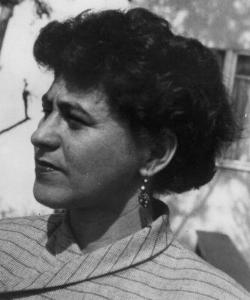
The “Johnson-Forrest Tendency” was formed as a faction in the American Trotskyist movement by Raya Dunayevskaya and C.L.R. James. So, even though “Marxist-Humanism” is overwhelmingly a current of ex-Stalinist, male academics and writers, it did not begin that way.
Raya Dunayevskaya had been a Secretary of Trotsky and was the first to translate Marx’s 1844 Manuscripts and make them known to the rest of the world. From her interest in the early Marx she developed an interest in the study of Hegel, especially the Logic. Her current is still represented by News and Letters.
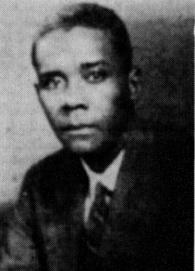
C. L. R. James came to Britain from the Carribbean as a literary critic and cricket commentator, but he came in contact with and joined the Trotskyist Movement. James also made his own study of Hegel and did ground-breaking research on the history of black struggles around the world
Although far more “orthodox” than the “Marxist-humanist” movement which blossomed in the 1960s, drawing intellectuals and writers out of the Communist Party, Dunayevskaya and James were among the first on the Marxist Left to turn positively to the new social movements beginning to emerge. See Raya Dunyevskaya’s Philosophy and Revolution.
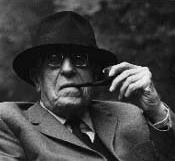
Like many other German Communist intellectuals, Ernst Bloch fled to America when Hitler came to power, but continued to publish in German for a German-speaking audience. He returned to East Germany in 1948, and developed a strand of humanist Marxism which eventually brought him into conflict with the Communist Party and he fled to the West in 1961. He retains a large audience in Germany, especially the East, to this day.
The Frankfurt School
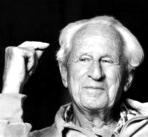
Herbert Marcuse was “baby” of the Frankfurt School when they were forced to flee Hitler's Germany and like most of the others, Marcuse made his home in the U.S.. Like the rest of the Frankfurt School, Marcuse’s works were obscure and inaccessible to the mass audience. However, his somewhat pessimistic analysis of modern capitalism and “consumerism” struck a chord with the young student radicals in France and the U.S. particularly, and One Dimensional Man achieved a mass audience that Reason and Revolution never did.
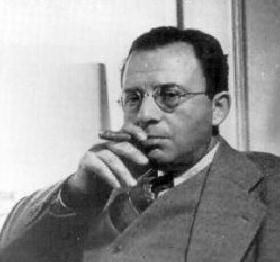
Erich Fromm published the collection, An International Symposium of Socialist Humanism in 1965, helping to bring a diverse group of writers together into a dialogue. Although Fromm had fled Germany, he continued to work on the problems of social psychology which so deeply moved those who had witnessed the rise of Hitler. Fromm was one of the first to attempt to make an amalgam of Marx and Freud.
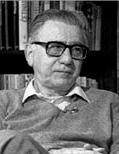
The Praxis Group (Yugoslavia)
The Praxis Group was a group of Marxist philosophers and sociologists with humanist orientation that published the journal “Praxis” from 1964 to 1974. The Praxis Group was the first organised, public oppositional group to emerge in Eastern Europe, in the relatively more liberal conditions under Josip Broz Tito, to bring forward a Marxist alternative to “state socialism” and Stalinist dogma and orthodoxy.
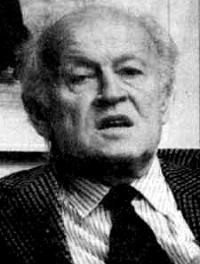
Predrag Vranicki was a Professor of Philosophy at Zagreb University, most famous for his study of the ideas of the Marxist theoreticians entitled History of Marxism.
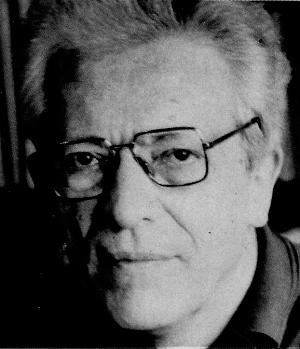
Mihailo Marković was Head of the Department of Philosophy and sociology at the Serbian Academy of Sciences and Arts. Marković’s special interest was Logic, and like Adam Schaff in Poland, he called into question the simplistic, Stalinist notions of “contradiction” which were the cornerstone of Marxist orthodoxy and bureaucratic double-speak.
Gajo Petrović was Professor of Philosophy at Zagreb University, one of the main theorists in the Praxis Group and long-time editor of the journal Praxis.
See also Karel Kosík's Man and Philosophy, 1965.
The Polish Left
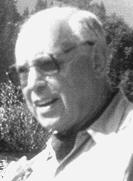
As a member of the Central Committee of the Polish Workers Party and a Professor Philosophy at the founding of the People's Republic, Adam Schaff was the chief instrument for the imposition of Soviet orthodoxy in social theory and philosophy in Poland.
In typically Polish fashion, however, Schaff bent to the pressure of the strong, local Polish tradition of philosophy and adapted to criticisms coming from below. Schaff was a logician, and began to develop a criticism of the simplistic, Stalinist notions of dialectics. As the dissident movement, with people like Jacek Kuron, became stronger, it became more and more difficult to contain criticisms within the scope of official Marxism. Through all the ups and downs of Polish history, Adam Schaff has retained his position and continues to publish and teach.
S.D.S. and the New Left in America

The New Left in the United States emerged out of the student movement, especially S.D.S. – Students for a Democratic Society.
C. Wright Mills was not himself a student at the time, or participant in this movement but he was able to give a Marxist voice to it, and his books critising the “power elite” – later to be called the “military-industrial complex” – sold by the million.

See The Power Elite, C. Wright Mills, 1956.
It was C. Wright Mills who definined the term “New Left,” when he published an Open Letter to the New Left, addressed to the editors of the New Left Review in Britain, but indirectly addressing the new social movements in the U.S. and Europe.
C. Wright Mills died at the young age of 45, but his decidedly “beatnik” persona was continued by the younger generation of the New Left in America.
Marshall Berman found the works of the young Marx – including the Communist Manifesto – spoke to him in a way that the dry tracts of orthodox Marxism he had been exposed to before did not.
The New Left Review (England)
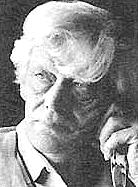
The New Left emerged in England from a very authoritative group of historians and social-theorists, mainly around the formation of the New Left Review, a magazine which continues to publish critical social, cultural and political commentary.
E.P. Thompson resigned from the Communist Party as a result of the Soviet suppression of the Hungarian Uprising. In 1963, he published Making of the English Working Class, one of the most significant works of Marxist histriography of the 20th century, still selling regularly to this day. Thompson consistently pursued a humanist critique of Soviet communism, and travelled the world seeking to create links between the peace movement in the West and the peace movement in the East.
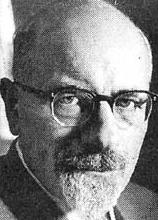
Isaac Deutscher came to England as a Polish refugee, and is most renowned for his monumental biography of Trotsky, which was able to preserve and convey to millions Trotsky's achievement, while still retaining sufficient distance to be able to make that assessment objectively. The problem of the development of the socialist human being lay at the centre of his life work.
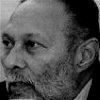
Stuart Hall was a post-war Jamaican immigrant to Britain, who managed against the odds to make it to top of academia at the London School of Economics.
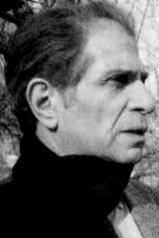
Stuart Hall took Marxist ideas into hitherto unchartered territory and initiated the idea of “Cultural Studies” as an academic discipline and was one of the initiators of “Post-colonial Studies.” He is a renowned expert on the problems of cutural change and “multi-culturalism.”
Ralph Miliband was another Polish immigrant to make it to the top in British academia. Miliband was a prolific publisher, translator and writer.
Other Publicists and Sociologists
T.B. Bottomore and Maximilien Rubel have both published prodigiously, being responsible for most of the publication of Marxist classics by the bourgeois publishing houses.
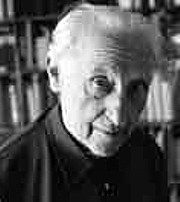
Lucien Goldman is another sociologist with a prodigious output of translations, collections, journals and original analyses, all with a humanist and Marxist bent.
Eugene Kamenka is an Australian Marxist who was the first writer after the rise of Stalin in the 1920s to make a systematic investigation of Ethics from a Marxist perspective, publishing The Ethical Foundations of Marxism in 1962.
Some of these writers are still alive and well, and most have been published to the mass market by prestigious bourgeois publishers who enforce their copyrights. This means that in most cases we are unable to reproduce their works on the Marxists Internet Archive. In the main, these writers have produced their work in isolation from the workers’ movement, but this does not ipso facto devalue or negate the validity of their ideas. What it does represent is how the development of Marxism has been fragmented by the division of labour in capitalist society, bringing about a partial separation of the development of theory and the practice of working class struggle.
For anti-humanist positions, see Socialism and Humanism and Part 2, by George Novack 1959,
Marxism and Humanism, by Louis Althusser 1964, and
Humanism and Socialism, by Paul Mattick 1965.